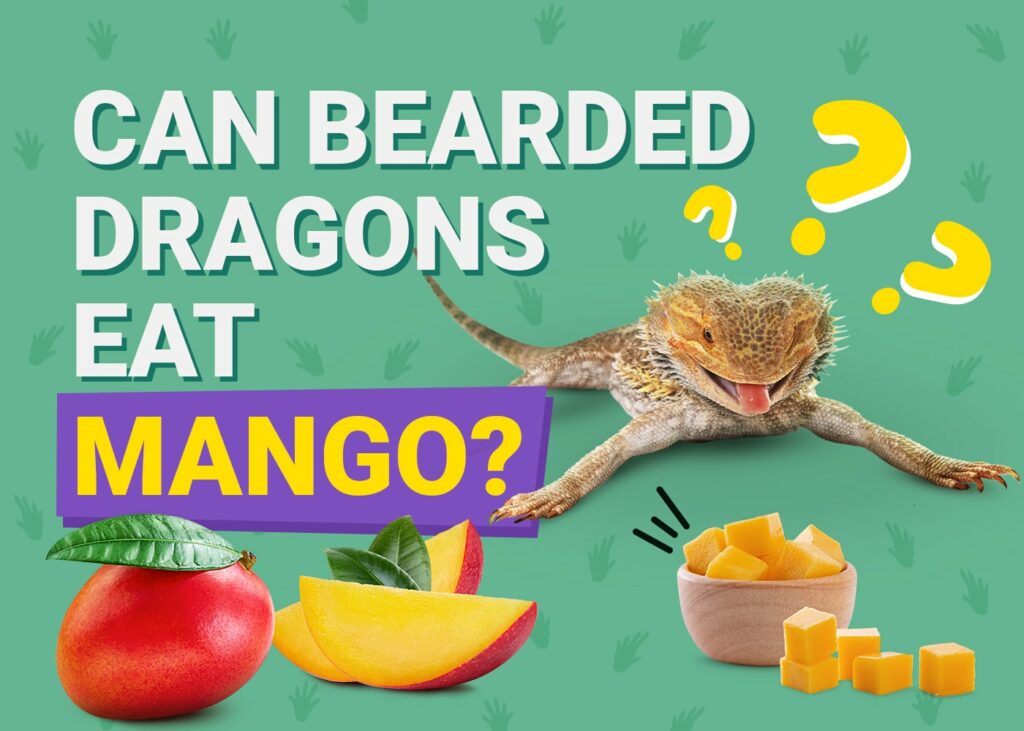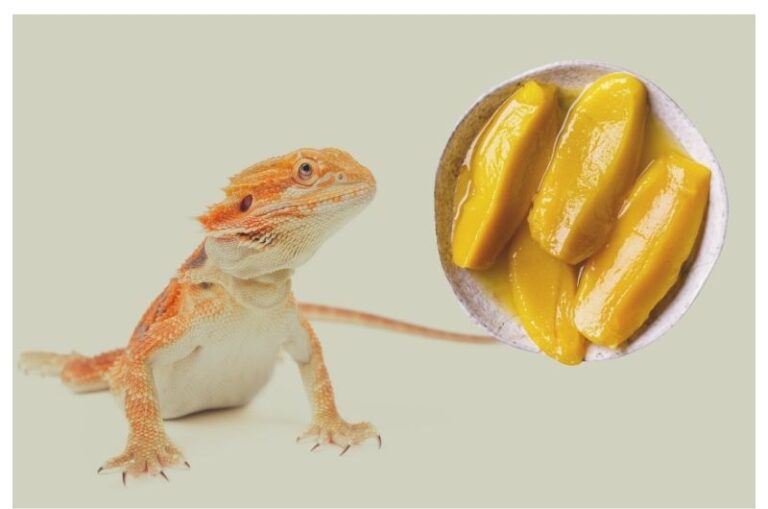Yes, bearded dragons can eat mango as it is a nutritious treat that bearded dragons love and will readily eat once placed inside the enclosure. However, they should be fed in moderation.
The mango contains very few oxalates, which is harmful to bearded dragons, and it contains several nutrients that are beneficial to them, including vitamin C and iron.
You should only offer mango to your bearded dragon occasionally as it is high in sugar and low in calcium. You should also remove the peel before feeding it as it may be too rough for them to digest.
The best way to feed your bearded dragon mango is to portion it out carefully and to feed it in small portions, no more than once or twice per week.
The Risks of Feeding Mango Skin

Mango skin is challenging for bearded dragons to digest due to its tough and fibrous texture. Reptiles like bearded dragons have a more delicate digestive system compared to other animals, and consuming tough and fibrous food can lead to digestive issues such as impaction.
Furthermore, mango skin may contain pesticides or chemicals that are harmful to bearded dragons. Even if you wash the mango thoroughly, it’s difficult to ensure that all traces of pesticides have been removed. Consuming these chemicals can lead to various health issues for your pet.
Safe Alternatives
While mango skin should be avoided, you can still offer your bearded dragon the flesh of the mango. Mango flesh is rich in vitamins and minerals that can benefit your pet’s overall health.
However, moderation is key when feeding mango or any other fruit to your bearded dragon. Fruits should only make up around 10% of their diet, with the remaining 90% consisting of vegetables, greens, and high-quality protein sources such as insects or cooked chicken.
Other safe fruit options for bearded dragons include papaya, blueberries, strawberries, and raspberries. These fruits can provide additional variety and nutrition to your pet’s diet, but remember to feed them in moderation.
The Importance of Variety in a Bearded Dragon’s Diet
When it comes to feeding your bearded dragon, it’s crucial to provide a diverse and balanced diet. Variety ensures that your pet receives all the essential nutrients they need for optimal health. While fruits can be a tasty treat for bearded dragons, their primary diet should consist of leafy greens, vegetables, and protein sources.
Leafy greens and vegetables should make up approximately 80% of your bearded dragon’s diet. These can include collard greens, dandelion greens, mustard greens, and squash. Avoid feeding them iceberg lettuce or spinach, as these vegetables have low nutritional value and can even cause health issues.
Protein sources for bearded dragons can include insects such as crickets, mealworms, and dubia roaches. Some bearded dragons may also enjoy the occasional treat of cooked chicken or other lean meats.
Calcium and vitamin supplements should also be provided to ensure proper bone health and overall well-being.
Conclusion
While mango flesh can be a safe and enjoyable treat for your bearded dragon, it’s best to avoid feeding them mango skin due to its tough texture and potential pesticide exposure.
Remember to offer a variety of fruits, vegetables, and protein sources to ensure your pet receives a balanced diet. By providing optimal nutrition, you can help your bearded dragon thrive and enjoy a long and healthy life.
